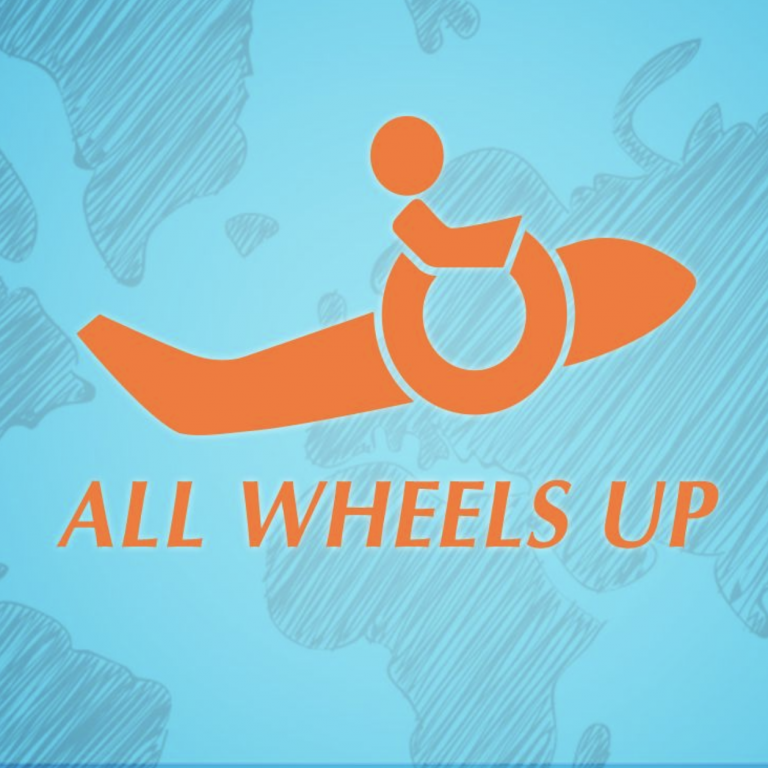

We connected with our newest partner, All Wheels Up—which increases awareness for safer and more dignified accessible air travel through research and advocacy—through Dr. Cheryl Archbald, recipient of the BCPH Professional Grant in 2022.
Awarded by lottery to a BCPH Professional member who joined by January 2022, the grant empowers the recipient to identify a public health organization to receive $10,000 in support. Dr. Archbald selected All Wheels Up based on her experiences raising a child with special needs who uses a wheelchair. “I have directly experienced the challenges of airplane travel for passengers with disabilities,” she explains. “I am confident that the BCPH grant will provide assistance with furthering these important efforts to improve global accessibility of airplane travel for individuals with disabilities.”
Dr. Archbald, who holds degrees from Harvard College, Vanderbilt University School of Medicine, and the Columbia University Mailman School of Public Health and volunteers with various community and professional organizations, exemplifies BCPH’s mission to democratize public health.
All Wheels Up’s mission is to increase awareness for safer and more dignified accessible air travel through research and advocacy.
Founder Michele Erwin created All Wheels Up in 2011 trying to arrange a trip to Disney World with her son Greyson who has SMA. After experiencing the difficulties of traveling with a Wheelchair, she knew something needed to be done and embarked on the journey of getting wheelchairs crash tested for Accessible commercial flight.
We ultimately found out existing wheelchair restraints from Q’Straint used in Accessible Cars and Buses can exceed the FAA requirement of 16 G’s and started testing them and working with regulators such as the FAA, Airlines, Airplane Manufacturers, and Congress to see how we can make Airplanes Accessible.
Being able to fly on Airplanes from the safety of your Wheelchair is something the disability community has wanted for years. Air Travel currently is a nightmare for us and many don’t even fly because of bad experiences; Wheelchairs get damaged constantly and even sent to the wrong airport and Airlines spend millions every year repairing them.
Our solution is for those who use electric wheelchairs, as well as properly modified Manual Wheelchairs, to independently maneuver themselves onto the plane with dignity and safety
We know Accessible Airplanes will allow Airlines to reach an untapped market of millions of customers and that it will dramatically increase the profits of the entire Travel industry.
Wheelchairs have actually flown on Airplanes before and the first time was on Air Force One when FDR flew on a modified military plane called “The Sacred Crow” to join Winston Churchill and Joseph Stalin at the Yalta Conference in 1945. The plane featured an elevator that could accommodate FDR and his Wheelchair.
Military Cargo Planes like the C-130 and C-5 feature tracking that has been used to transport wheelchairs in emergency situations.
At the end of 2018, All Wheels Up was so proud Congress passed the FAA Reauthorization Act with our amendment requiring a feasibility study into wheelchair securement systems that we spent years advocating for. It also required airlines to finally report how many wheelchairs they break every month, contained a Passenger with Disabilities Bill of Rights, sets minimum seat dimensions, and much more.
The feasibility study, which you can read here, was finally released in 2021 and “did not identify any issues in this preliminary assessment that seem likely to present design and engineering challenges so formidable that they call into question the technical feasibility of an in-cabin wheelchair securement system and the value of exploring the concept further”.
In 2022 Secretary of Transportation Pete Buttigieg announced plans for a new rule in the coming years to allow passengers to stay in their wheelchairs when they fly.
There are currently 4 million wheelchair users in the USA and growing according to the latest census and Adults with Disabilities spend $17 billion on travel annually. There are another 4 million in the EU and millions more in the developing world.
The FAA projects US airline passenger growth to average 2% every year and US air travel demand to go from 756.3 million passengers in 2014 and nearly double by 2035 reaching 1.14 billion passengers. The IATA projects world airline passenger growth to average 3.8% ever year and world air travel demand to double from 3.5 billion passengers in 2015 to 7 billion by 2034.
Combined with a dramatically growing elderly population, accessible planes can bring in a travel revolution.





